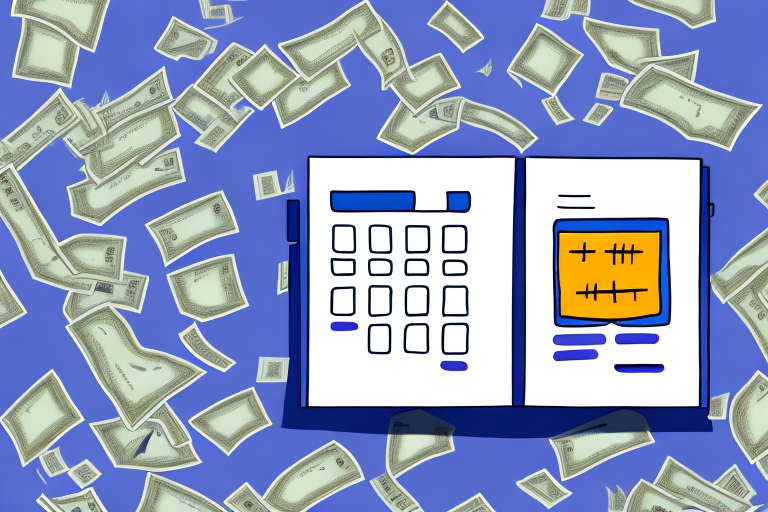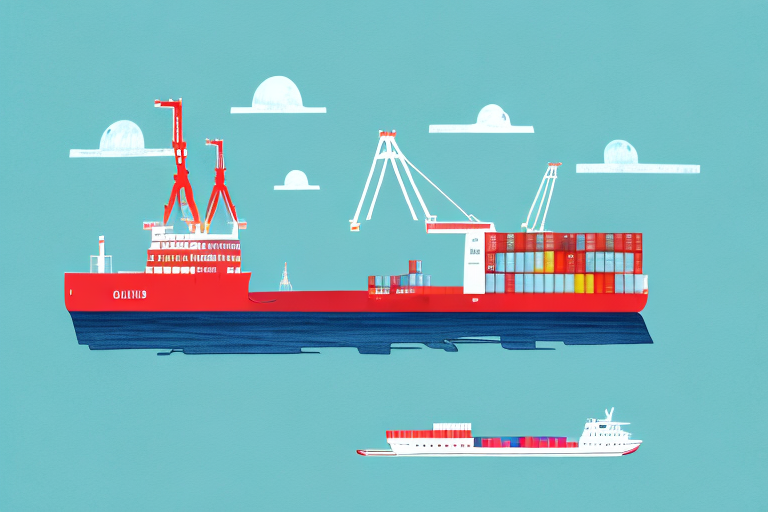How to Calculate the Customs Value for FedEx Shipments
If you're shipping goods internationally with FedEx, understanding how to accurately calculate the customs value of your shipments is crucial. Incorrectly declaring the value can lead to delays, fines, and even seizure of your goods. In this comprehensive guide, we'll cover everything you need to know about calculating customs value for your FedEx shipments.
Understanding the Basics of International Shipping
Before diving into customs value calculation, it's essential to grasp the fundamentals of international shipping. When you ship goods across borders, they must pass through customs checkpoints in both the exporting and importing countries. At each checkpoint, customs officials assess the value of your goods and determine applicable taxes, tariffs, and duties. The customs value forms the basis for these assessments and is critical for ensuring compliance with customs regulations.
Required Documentation for Customs Clearance
One important aspect of international shipping is the documentation required for customs clearance. This includes:
- Commercial invoices
- Packing lists
- Bills of lading
Ensuring that all documentation is accurate and complete helps avoid delays or additional fees.
Managing Unexpected Costs
Another factor to consider is the potential for unexpected costs, such as storage fees or demurrage charges, which can occur if your shipment is held at a port or warehouse for an extended period. Factoring in these potential costs during your planning process and working with a reputable freight forwarder or customs broker can help navigate the complexities of international shipping.
Why It's Important to Calculate Customs Value for Your FedEx Shipments
Accurately declaring customs value is essential for multiple reasons:
Avoiding Legal and Financial Penalties
Declaring an incorrect value for your shipment can result in significant consequences. Under-declaring can lead to fines and seizure of goods, while over-declaring can cause delays in customs processing and higher taxes and fees.
Compliance with Trade Agreements
Accurate customs value declaration is also vital for complying with regional trade agreements and determining the true value of your goods for insurance purposes.
Cost Management
Proper calculation helps in saving money on taxes and duties by avoiding overpayment, which is particularly important for businesses that regularly ship goods internationally.
A Step-by-Step Guide to Calculating the Customs Value for Your FedEx Shipments
Understanding the importance of customs value, here's how to calculate it for your FedEx shipments:
- Determine the Transaction Value: This is the price paid or payable for the goods when sold for export to the country of importation, including any commissions, royalties, assists, and packing costs. Ensure the transaction value is converted to the importing country's currency.
- Add Additional Charges: Include transportation, insurance, and handling expenses incurred before the goods arrive in the importing country.
- Adjust for Discounts or Rebates: Subtract any discounts or rebates offered by the seller that are directly related to the goods being valued.
- Include the Value of Buyer-Provided Goods or Services: Add the value of any goods or services provided by the buyer to the seller that aren't included in the transaction value, such as tooling or molds.
- Exclude Taxes or Duties Paid in the Exporting Country: Do not include any taxes or duties paid in the exporting country.
It's important to note that the customs value may differ from the commercial invoice value. Customs officials might adjust the value based on factors like the condition of the goods, the market value in the importing country, or other relevant information.
Ensuring Documentation Accuracy
Accurate and complete documentation is crucial. Any errors or omissions can result in delays, fines, or even seizure of goods by customs officials.
The Different Methods for Calculating Customs Value and Which One to Choose
There are six methods for calculating customs value, with the most commonly used being the transaction value method. The other methods include:
- Identical goods method
- Similar goods method
- Deductive value method
- Computed value method
- Fallback method
Choosing the appropriate method depends on the specific circumstances of your shipment. Consult with your customs broker or FedEx representative to determine the best method to use.
Impact of Different Methods
The chosen method can significantly impact the amount of duties and taxes owed. For example:
- Computed Value Method: May result in a higher customs value as it accounts for production costs and profit margins. Suitable for unique or customized goods.
- Identical Goods Method: More appropriate for standardized products.
Common Mistakes to Avoid When Calculating Customs Value for Your FedEx Shipments
Even with a clear understanding of the calculation process, some common mistakes can occur:
- Not factoring in all costs associated with the shipment
- Forgetting to convert the transaction value to the importing country's currency
- Inaccurately valuing rebates or discounts
- Not accounting for additional services provided by the buyer
Double-check your calculations and work with your customs broker to ensure accurate declaration of customs value.
Proper Classification of Goods
A common mistake is not properly classifying the goods being shipped. Different goods have different duty rates and classifications, so accurately classifying your goods is essential to avoid discrepancies in customs value.
Understanding Country-Specific Regulations
Customs regulations and requirements can vary by country. Research and understand the specific regulations and requirements for your destination country to avoid issues with customs clearance.
Tips for Accurately Declaring the Customs Value of Your FedEx Shipments
Follow these tips to ensure accurate declaration of customs value:
- Keep detailed records of all transaction and shipping-related expenses
- Regularly review and update your valuation process to comply with changing regulations
- Communicate effectively with your customs broker to clarify any questions or concerns
Accurate Classification Using HS Codes
Accurately classify your goods by determining the correct Harmonized System (HS) code, which impacts the customs duties and taxes you pay. Research and understand the HS codes for your products or seek assistance from a customs broker.
Awareness of Special Requirements
Be aware of any special requirements or restrictions for your shipments. Certain products may require additional documentation or permits, and some countries may have restrictions on specific goods. Research and comply with these requirements to avoid delays or penalties.
How to Ensure Compliance with Customs Regulations When Shipping with FedEx
Compliance with customs regulations is essential for successful international shipping. FedEx offers a range of resources to help ensure compliance, including:
- Customs brokerage services
- Trade documentation assistance
- Regulatory updates and alerts
- Technology tools for customs compliance
Work with FedEx and your customs broker to streamline your customs clearance process and avoid any compliance-related issues. Stay updated on the latest regulations and requirements for your destination countries using FedEx's country-specific resources.
The Consequences of Incorrectly Calculating Customs Value for Your FedEx Shipments
Incorrectly declaring customs value can lead to several severe consequences:
- Fines and penalties
- Seizure of your goods
- Increased taxes and fees
- Criminal charges in extreme cases of fraud or intentional misrepresentation
Additionally, inaccuracies can cause delays in the delivery of your shipments as customs officials may hold your package until the correct value is declared, potentially leading to missed deadlines and dissatisfied customers. Accurately calculating customs value is essential to avoid these risks.
How Customs Fees and Taxes are Determined and What You Can Do to Minimize Them
Customs fees and taxes are based on the customs value of your shipment and can vary significantly between countries. Here are ways to minimize these costs:
- Research the tariff rates and import regulations for each destination country
- Ensure accurate calculation of customs value
- Consult with your customs broker to explore available duty relief programs
Utilizing Free Trade Zones
Consider shipping your goods through a free trade zone, designated areas where goods can be stored, processed, and re-exported without being subject to customs duties and taxes. This can help delay paying customs fees and taxes until your goods are ready for their final destination, reducing overall costs and improving cash flow.
Best Practices for Managing International Shipping Costs with Proper Customs Value Calculation
Proper customs value calculation is a vital component of managing international shipping costs. Additionally, consider the following best practices:
- Optimize shipping methods and schedules for maximum efficiency
- Consolidate shipments to reduce individual customs fees and taxes
- Use technology tools for tracking and monitoring your shipments
- Partner with a reliable and experienced customs broker
Negotiating Shipping Rates
Negotiating rates with your carriers can save money on shipping costs and reduce overall expenses.
Staying Informed on Regulatory Changes
Stay up-to-date on changes in regulations or tariffs that may impact your shipments to avoid unexpected fees and delays.
Implementing Inventory Management Systems
Implement a system for managing your inventory and orders to better plan and optimize shipping processes, reducing costs and improving customer satisfaction through timely and accurate deliveries.
How Technology Can Help Simplify the Process of Calculating Customs Value for Your FedEx Shipments
Technology can streamline the customs value calculation process and reduce the risk of errors. Here are some tools to consider:
- Automated duty and tax calculator software
- Electronic Data Interchange (EDI) systems for seamless data exchange with customs agencies
- Real-time customs clearance tracking and monitoring
Consult with your customs broker or FedEx representative to determine which technology tools best suit your needs.
Accurately calculating the customs value of your FedEx shipments is crucial for successful international shipping. Though it may seem complicated, following these guidelines and working with experienced professionals can help ensure accurate declaration of customs value and compliance with all customs regulations.








